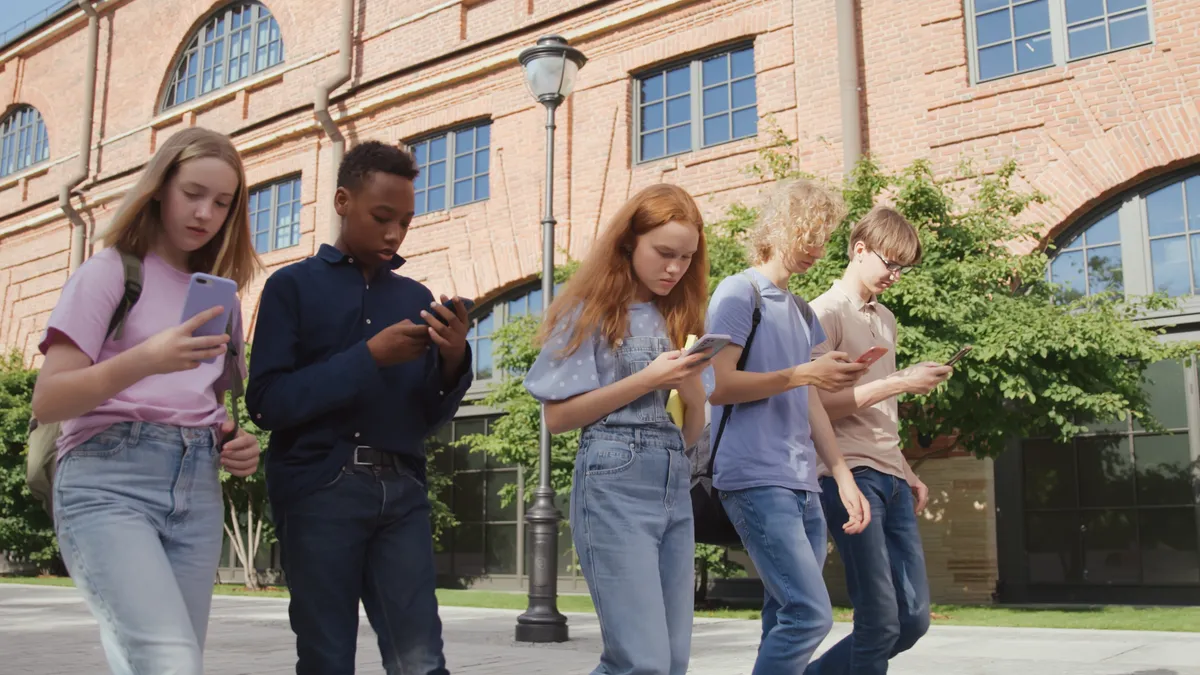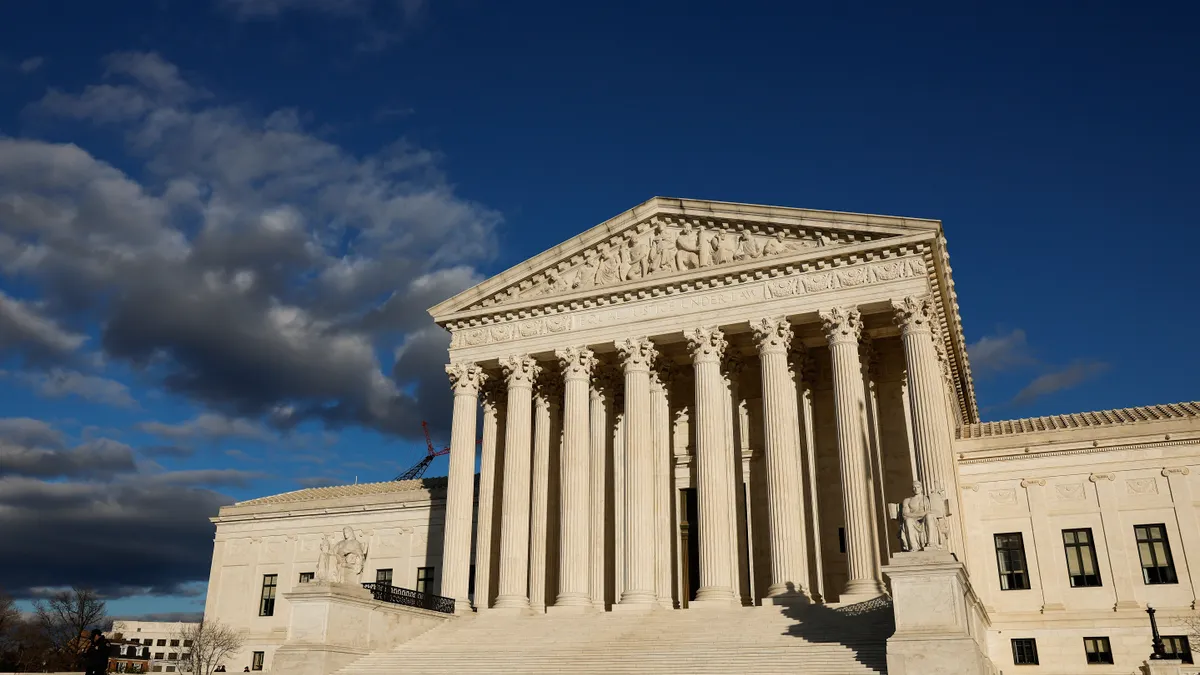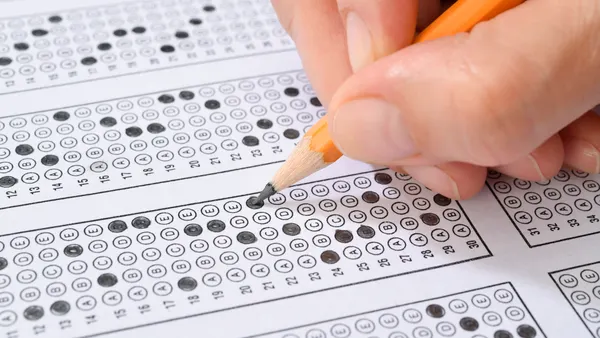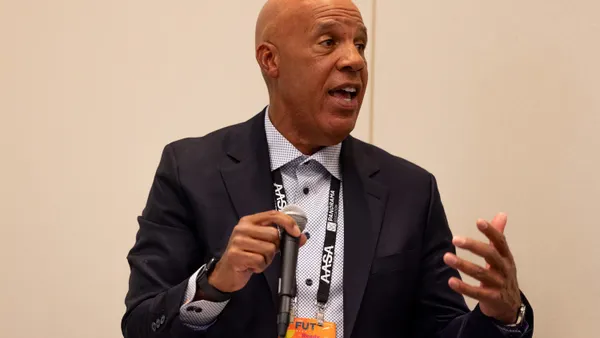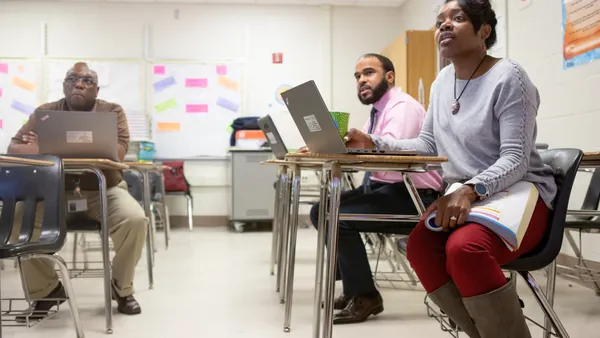Dive Brief:
- Students, teachers and principals view cellphone restrictions as beneficial to some extent, and almost all school leaders report having such policies in place, according to three nationally representative surveys released this month.
- An overwhelming majority of principals (86%) in schools with cellphone restrictions had positive feedback, citing improved school climate, less inappropriate cellphone use and reduced cyberbullying, according to Rand findings released Oct. 7. Six in 10 students said they support phone restrictions during class time because they lessen distractions — but only 1 in 10 supported a "bell-to-bell" limit.
- A second study related strict schoolwide cellphone policies on when and where students can use their phones to less phone use during class and higher teacher satisfaction. Those preliminary findings come from a national survey of more than 20,000 public school educators by Phones in Focus, a nonpartisan research project supported by the National Governors Association.
Dive Insight:
Cellphone restrictions have skyrocketed nationwide as research points to the harmful effects on children, including emotional and behavioral problems, from increased screen time.
At least 26 states have laws or policies requiring local school boards to ban or limit cellphone use in K-12 classrooms — with 22 of those enacted in 2025, according to an August Ballotpedia analysis.
Based on the Phones in Focus project, "So far two patterns stand out: The stricter the policy, the happier the teacher and the less likely students are to be using their phones when they aren't supposed to," said lead researcher and psychologist Angela Duckworth.
While all-day bans may be unpopular among students, educators linked them to increased student focus. That improved focus also held true for restrictions that don't permit students to keep their phones nearby, including in their backpacks or back pockets, according to preliminary findings by Duckworth and economists spearheading the Phones in Focus study.
High-poverty K-12 schools were more likely to impose strict bans on cellphone use in the 2024-25 school year than schools in low- or medium-poverty neighborhoods, according to the third school cellphone study out this month.
Overall, bans were less strict for high schoolers, who have relatively more independence than students in younger grades, according to that research, which was published Oct. 3 in JAMA Health Forum, a peer-reviewed medicine and health research journal.
Meanwhile, more Americans are supporting cellphone restrictions than in previous years. Nearly three-quarters of U.S. adults rallied behind restrictions for middle and high school students, according to Pew Research Center data released this summer. The research did not study attitudes on bans for elementary school students.
However, there is also evidence to show that restrictive measures have drawn resistance.
A 2005 survey from the National Parents Union showed over three-quarters of parents want their children to have cellphone access during the school day in case of an emergency.
While restrictions vary by state — and sometimes by district and even school — some governments have developed approaches that could accommodate parent concerns.
New York, for example, banned internet-enabled electronic devices including cellphones and laptops not only in the classroom, but on K-12 school grounds entirely during the school day starting in 2025-26. But districts have leeway to develop their own policies under the state requirement "to advance a plan that works best for their buildings and students," according to the New York governor's office.
For students attending New York City Public Schools, the nation's largest school system and the largest system with a cellphone ban, this means students must store their devices during the school day. There are exceptions, however, including when devices are needed for students with medical conditions, for translation services, in individual emergency situations, or under an Individualized Education Program.


